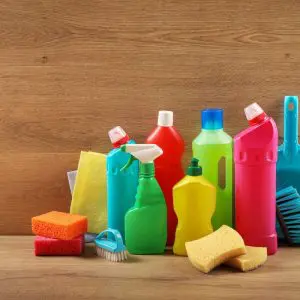A Reading product liability lawyer at Munley Law can be your strongest advocate when you’ve been injured by a defect or dangerous product in Reading. Product liability claims tend to be complex and you could be facing a large corporation who is determined not to pay for your injuries. You need an attorney who has the experience and knowledge needed to investigate the claim and hold those who caused you harm accountable.
Munley Law has the credentials, the track record, and the skills needed to fight for your rights. Whether you’ve been harmed by a faulty appliance, contaminated food, or a malfunctioning vehicle, contact our defective products lawyer in Reading, PA, for a free consultation.
$32 Million Wrongful Death
$26 Million Truck Accident
$20 Million Commercial Vehicle Accident
$17.5 Million Car Accident
$12 Million Work Injury
$11 Million Truck Accident
$9 Million Truck Accident
$8 Million Truck Accident
$8 Million Truck Accident
$7.5 Million Auto Accident
$6.9 Million Garbage Truck Accident
$6.5 Million Traumatic Brain Injury
How to Recover Compensation in a Reading Product Liability Case
 Like with all personal injury cases in Reading, product liability claims open you up to the possibility of recovering compensation in line with the suffering you’ve experienced.
Like with all personal injury cases in Reading, product liability claims open you up to the possibility of recovering compensation in line with the suffering you’ve experienced.
Compensation in a case dealing with product defects falls into two main categories: economic damages and non-economic damages.
Economic damages refer to those that have an inherent monetary value attached, and they are intended to restore the plaintiff to their original economic state. Some forms of economic damages include:
- Medical bills
- Lost wages
- Compensation for lowered earning potential
Non-economic damages, on the other hand, are intended to account for the victim’s pain and suffering. As you may imagine, it can be difficult to attach a single number to the emotional trauma of a terrible accident, and this is one reason why working with experienced product liability lawyers is key to winning your case.
This also depends on whether the lawsuit is approached as an individual or class action case. In some product liability cases, when multiple people are injured by the same defective product, those people will band together and bring about a class action lawsuit. This may be a wise approach when the individual claims are relatively small, but many of them exist. For instance, if a defective toaster caused minor harm to hundreds of people, none of these cases will be incredibly impactful, and a large company may take no notice of them. But when these people band together, they can show that the product is causing great harm. Conversely, if one individual experiences catastrophic damage from a product, their best path may be to file a particular case.
We know this is a lot of information, but Munley Law knows what it takes to build a strong case and secure you the justice and compensation you deserve. We are here for you. Contact Munley Law today for a free consultation.
Holding Those Responsible for Your Defective Product Injuries in Reading
 In a case involving an unsafe product or a product defect, many parties may potentially be at fault. Understanding the chain of distribution of the defective product is key to determining who may be responsible.
In a case involving an unsafe product or a product defect, many parties may potentially be at fault. Understanding the chain of distribution of the defective product is key to determining who may be responsible.
All defective products pass through a series of hands from their initial creation to the point they end up on the shelves, and any part of the defective product’s chain can be at fault.
- The Manufacturer: The manufacturer of a defective product is one of the parties who may be held liable. If the issue with the product is that it was improperly manufactured, this party may be at fault. This is true whether the product comes from a major company or an individual person.
- The Retailer: A retailer can also be at fault when it comes to product liability law. If a retailer damaged a product, rendering it unreasonably dangerous, and sold it anyway, that’s a major issue.
- The Designer: Of course, if the defective product is unsafe due to a design issue, the party or company responsible for the design may be held responsible.
Other potentially liable parties include wholesalers, distributors, marketers, contractors, and more. In some cases, a product liability case may also be a medical malpractice case, if a doctor knowingly used a faulty product. In this case, the doctor could also potentially be liable. It’s best to talk to your legal team in order to determine who is truly at fault in your case. In some cases, food poisoning can also fall under product liability — the restaurant or purveyor may be held responsible.
The product liability attorneys at Munley Law Personal Injury Attorneys can review your case in great detail and successfully identify all parties who may bear some degree of responsibility for your injuries.
Common Types of Product Liability Cases in Reading, PA
There are several types of defective products and various ways in which a particular product may be harmful. Generally speaking, there are three categories into which a product liability case may fall: design defects, manufacturing defects, and marketing defects. The category to which your case belongs will, in many ways, determine the legal path your Reading product liability lawyers take.
Design defects: One form of product defect that may lead to a liability suit is a design defect. Design defects occur when a product contains an inherent flaw in the design, making it unsafe for use. Design defects might include a power tool that melts when turned onto a high setting, or a bike helmet that cracks upon impact, causing injuries. These kind of flaws mean the item is a defective product. The design defects may occur because the manufacturer did not properly test the product before putting it on the market. They may also occur if a manufacturer was aware of the design defect, but decided to move forward regardless. A defective product such as this should not be available to consumers, and can cause a great deal of harm.
Manufacturing defects: A manufacturing defect occurs when there is an error during the actual manufacturing process, even if the product was properly designed. Examples of manufacturing defects may include a necessary bolt or screw missing, making the product unsafe, or circuitry that is improperly installed. Manufacturing defects such as these can make a product dangerous and can most certainly harm the consumer. In a case like this, the manufacturer may well be found responsible for the ensuing injuries.
Marketing defects: The third main category of product liability law includes marketing defects. A marketing defect occurs when the consumer is not properly informed about the safe and correct way to use a product, or is not made aware of the risks of a certain product. Many products feature warning labels that make the user aware of any possible risks that use of the product may entail; if these are absent or incorrectly listed, it’s a problem. Other types of marketing defects include advertisements that show improper use, incorrect instructions that come with a product, and false claims about a product’s abilities or efficacy.
Any of these kinds of defective products can pose a huge risk to the user. In many cases, they may even fall into the category of “unreasonably dangerous”, meaning that the product poses greater risks than an ordinary user would reasonably expect.
If you have been injured do to a defective product such as those listed here, you have rights. Munley Law can supply you with a legal team that will work round the clock in order to obtain justice on your behalf.
Proving Strict Liability in a Reading Product Liability Lawsuit
In a product liability lawsuit, strict liability refers to the notion that the actions of the defendant are essentially not taken into consideration. In other personal injury cases, like those involving car accidents, the defendant’s behavior would be a huge piece of the puzzle. Were they drinking? Were they texting? What behaviors did they do that led to this accident?
However, courts recognize that it would be extremely challenging for a plaintiff to identify the specific point along a product’s journey during which it became defective or dangerous. For this reason, in many cases involving defective products, the defendant can be found legally responsible even in the absence of any fault or criminal intent.
In order to successfully make a strict liability claim, the plaintiff must prove the following:
- A defect that made the product “unreasonably dangerous” emerged at some point in the item’s chain of distribution, whether that be in its design, manufacturing, handling, or marketing.
- That defect caused the plaintiff’s injury, and this occurred while the item was being used as intended.
- The product had not substantially changed from its original condition in any way that impacted the product’s performance.
The plaintiff is not required to prove that the defendant acted maliciously, with ill-intent, or even recklessly. As long as the product was meant for the marketplace, and once there, caused an injury while being used as intended, you may well have a strict liability case on your hands.
If you have been injured by a product and have questions about strict liability, please contact our law offices at any time. The Munley Law Personal Injury Attorneys lawyers are at the ready, prepared to work with you and guide you through this process. We know it can be scary, particularly if it involves going up against a powerful company, but that’s why we’re here. Injuries caused by ill-functioning products are serious, and the company responsible need to be held accountable. Feel free to contact our law firm any time for general information purposes.
What Is an Implied Warranty in a Reading Defective Products Case?
In Reading, all goods are covered by something called “implied warranty”. What does this mean? According to Title 13 of the Pennsylvania General Assembly, this means that a consumer can legally expect a product to work as advertised and expected, and that it will be of reasonable quality.
It’s important to note that this safety measure for consumers applies only to items purchased in a store — if you buy a TV from your neighbor that doesn’t work, you would not be entitle to a refund or repair.
What a Reading Product Liability Lawyer Can Do for You
At Munley Law, we have spent decades protecting and fighting for the best interests of our clients. If a defective product has injured you, you deserve the best when it comes to fighting for justice, and the best is what Munley offers.
Here, we treat the attorney client relationship with the utmost reverence. Each of our clients is a valued member of the Munley family, and we give every individual case the attention and care it deserves. Our attorneys are experts in product liability cases, and our years of experience in litigation make us the best choice to protect you.
Don’t hesitate to reach out to our Reading personal injury attorneys. Even if you’re not sure where to begin, you can contact us for general information purposes. We have the decades of experience necessary to go up against a powerful company, and we’re always happy to provide a free initial consultation so that you can get started on your journey.
Contact our law offices to be connected with a Reading products liability lawyer today, and to learn how we can help.









